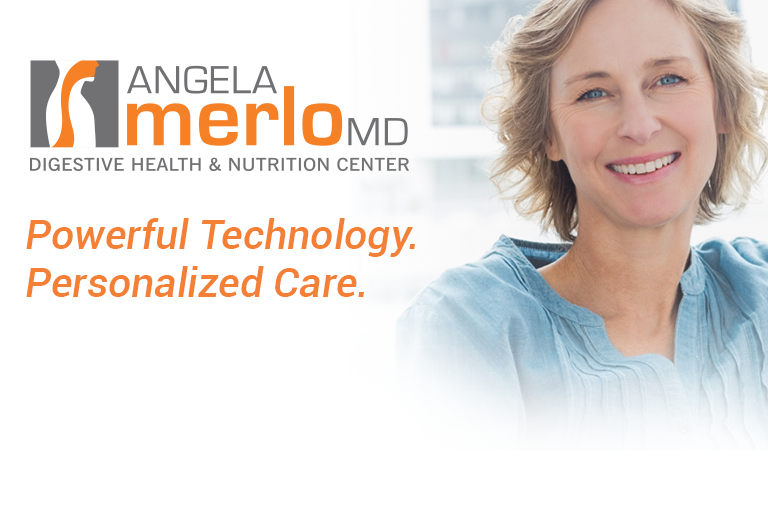Ulcers in New Jersey
Peptic ulcers are common in adults as well as children. The Digestive Health & Nutrition Center has two convenient locations in Lawrenceville and Princeton, New Jersey where you can receive the exceptional care you deserve. Angela Merlo, MD is an experienced Gastroenterologist specializing in the diagnosis and treatment of peptic ulcers in New Jersey in people of all ages.
What are Peptic Ulcers?
When most people think of ulcers, they think of ulcers in the stomach or duodenum (the first part of the small intestine). Collectively, ulcers of the stomach and duodenum are called peptic ulcers. An ulcer is a sore or hole in the lining of the digestive tract and can occur in any digestive organ. However, ulcers in the esophagus and colon are not as common as peptic ulcers. Peptic ulcers are not associated with cancer. But, some cancers can create ulcers in the stomach so accurate diagnosis is crucial.
What Causes Peptic Ulcers?
There are a few well established causes:
- Anti-inflammatory medications such as aspirin, ibuprofen and naprosyn
- Helicobacter pylori infection
- Stress
Peptic ulcers can occur in the absence of one of these identifiable causes. These affected individuals are thought to produce an excess of stomach acid in response to a meal and lack the usual inhibitory mechanism to turn off acid production once food has moved out of the stomach.
What are Symptoms of Peptic Ulcers?
About half of peptic ulcers produce no symptoms and are diagnosed only after a complication such as bleeding. The most common symptom associated with a peptic ulcer is pain in the upper abdomen. The pain usually improves with food as stomach acid begins the digestive process and then recurs about an hour or so after eating when food has moved out of the stomach but stomach acid persists. The pain can be most severe at night when production of stomach acid is the highest. But, affected individuals can also experience:
- Heartburn
- Indigestion
- Nausea or vomiting
Alarm features indicating the need for complete evaluation for someone with indigestion are:
- New indigestion in anyone older than 55 years
- Gastrointestinal bleeding
- Difficulty swallowing that is worsening
- Pain on swallowing
- Iron deficiency anemia
- Persistent vomiting
- Unintended weight loss
- Jaundice or yellow coloration to eyes and skin
- Family history of stomach cancer
How are Peptic Ulcers Diagnosed?
The diagnosis of peptic ulcer is suspected when symptoms are present are there has been use of anti-inflammatory medications or Helicobacter pylori infection. An upper endoscopy is the only test that can definitively establish the diagnosis. Dr. Merlo has particular expertise in performing upper endoscopy and obtaining the necessary biopsies to test for the presence of Helicobacter pylori and to exclude cancer and other serious medical conditions.
How are Peptic Ulcers in New Jersey Treated?
Treatment is aimed at reducing stomach acid so that healing can occur. There are a variety of medications available that either block the effects of stomach acid or suppress the production of stomach acid. Eradication of Helicobacter pylori with antibiotics is necessary to promote healing and prevent recurrence in individuals harboring the bacteria. Individuals needing anti-inflammatory medication for certain medical conditions have specific concerns. Ask Dr. Merlo what treatment is right for you.
If you have symptoms or suspect you have a peptic ulcer, contact the Digestive Health & Nutrition Center in Lawrenceville or Princeton, New Jersey for an appointment. Dr. Merlo is an experienced Gastroenterologist specializing in the diagnosis and treatment of peptic ulcers in New Jersey adults and children.






